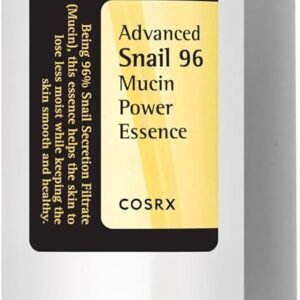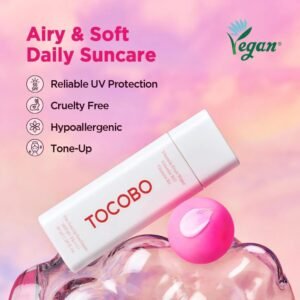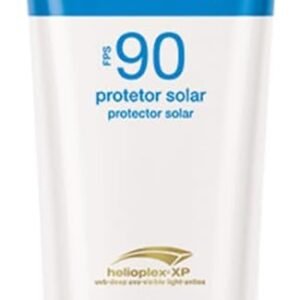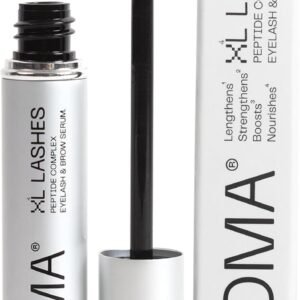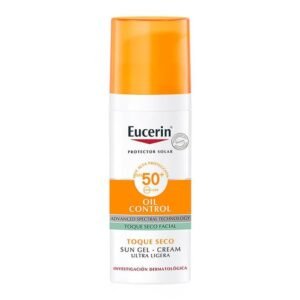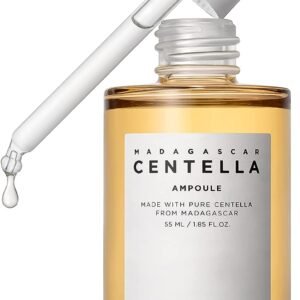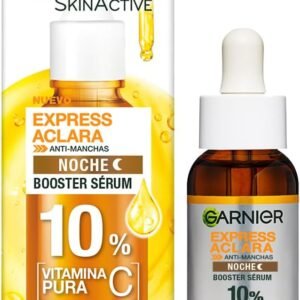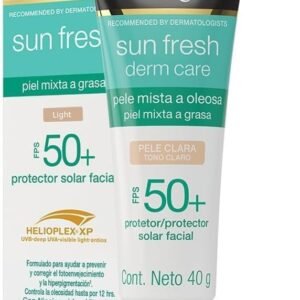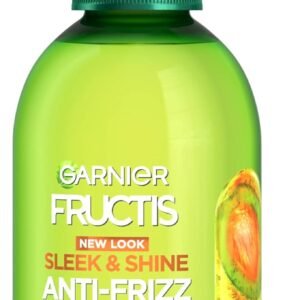“`html
Introduction to Minimalist Skincare
Minimalist skincare is a trending concept that advocates for a streamlined approach to skin health. At its core, minimalist skincare emphasizes reducing the number of products in one’s routine, focusing instead on a few essential, high-quality items. This trend is rooted in the belief that a simplistic regimen can be more effective, less irritating, and more sustainable than a complex multistep routine.
The popularity of minimalist skincare has surged in recent years, driven by the desire for simpler, more efficient beauty practices. Consumers are becoming increasingly aware of the potential downsides of using numerous, often redundant skincare products, which can include skin irritation, environmental impact, and financial cost. This growing awareness has paved the way for a shift towards minimalism in skincare, where quality over quantity is the guiding principle.
The minimalist skincare approach typically involves a basic set of products: a gentle cleanser, a moisturizer, and sunscreen. Depending on individual skin needs, additional items like a serum or an exfoliator might be included, but the guiding principle remains to use fewer, more potent products. The goal is to achieve and maintain healthy skin with the least possible intervention, focusing on ingredients that are scientifically proven to be effective.
This trend also aligns with the broader movement towards minimalism in lifestyle, where people are seeking to declutter and live more intentionally. The beauty industry has responded by creating multipurpose products and straightforward formulations that cater to this demand. With an emphasis on simplicity and efficacy, minimalist skincare promises to make skincare routines more manageable and less overwhelming, appealing to a wide range of individuals looking for both efficiency and results in their beauty regimen.
Historical Background and Origins
The concept of minimalist skincare, though it appears modern, has roots that can be traced back to various cultural practices and lifestyle movements. This trend began gaining significant traction during the late 2010s, paralleling the broader minimalist lifestyle that emphasized simplicity, sustainability, and intentional living. It was during this period that individuals started questioning the necessity of extensive, multi-step skincare routines, seeking more streamlined, effective approaches.
The Japanese concept of ‘mochi’ skin, which highlights a plump, hydrated, and naturally glowing complexion, has greatly influenced minimalist skincare. Originating from Japan, ‘mochi’ skin practices focus on hydrating and maintaining the natural barrier of the skin, often utilizing a limited range of high-quality products. This cultural approach encourages minimal but effective product usage, aligning closely with the minimalist skincare ethos.
French skincare routines have also played a crucial role in shaping the minimalist skincare trend. Renowned for their effortless beauty and emphasis on quality over quantity, French skincare philosophies prioritize fewer, but highly effective products. This approach, emphasizing simplicity and routine consistency, resonates with the principles of minimalist skincare, further propelling its popularity.
Furthermore, the minimalist skincare trend is intertwined with the eco-conscious and sustainable living movements. As individuals became more aware of their environmental footprint, there was a shift towards products that are not just beneficial for the skin but also environmentally friendly. This led to the popularity of brands offering minimalist skincare solutions, boasting clean, non-toxic, and sustainable ingredients.
In conclusion, the minimalist skincare trend is not merely a fleeting fad but a culmination of time-tested cultural practices and modern lifestyle philosophies advocating simplicity, sustainability, and intentional self-care. Through the influence of Japanese ‘mochi’ skin and French skincare traditions, combined with a rising demand for eco-conscious products, the minimalist skincare trend has firmly established its presence in the beauty industry.
Key Principles and Philosophy
The minimalist skincare trend hinges on a fundamental philosophy: the belief that ‘less is more.’ This principle emphasizes the use of fewer, but more effective products in a skincare routine. By focusing on quality over quantity, minimalist skincare advocates for a streamlined regimen that prioritizes essential ingredients known for their efficacy.
Central to this philosophy is the inclusion of multi-functional ingredients. These components are selected specifically for their ability to provide multiple benefits to the skin. For instance, hyaluronic acid is lauded for its hydrating and plumping properties, while niacinamide can address issues ranging from pigmentation to inflammation. By incorporating such versatile ingredients, the minimalist approach ensures that each product in the routine serves several purposes, thereby reducing the complexity and clutter often associated with traditional skincare routines.
Moreover, a critical tenet of minimalist skincare is the avoidance of unnecessary chemicals and additives. This approach advocates for formulations that are devoid of potential irritants, such as artificial fragrances, parabens, and excessive preservatives. By steering clear of these elements, minimalist skincare aims to minimize the risk of adverse reactions and sensitivities, promoting a healthier skin barrier.
The minimalist skincare philosophy also encourages consumers to pay close attention to ingredient labels, fostering a more informed and conscious approach to skincare. This mindset not only simplifies the skincare process but also aligns with a broader pursuit of sustainability and mindful consumption. Fewer products translate to less waste, making minimalist skincare an environmentally friendly choice.
Ultimately, the key principles of minimalist skincare revolve around the efficient use of targeted, high-quality ingredients that deliver multiple benefits, the elimination of unnecessary additives, and a mindful, less-is-more approach that is both skin-friendly and sustainable.
Benefits of Minimalist Skincare
Minimalist skincare, characterized by using fewer products with simpler formulations, offers a multitude of benefits for both skin health and daily life. One of the primary advantages is reduced skin irritation. Many skincare products, especially those with multiple active ingredients, can cause sensitivity and adverse reactions. By minimizing the number of products used and focusing on those with fewer, gentler ingredients, the risk of irritation is significantly lowered. This approach is particularly beneficial for individuals with sensitive skin or those prone to conditions like eczema and rosacea.
Another crucial benefit is enhanced product absorption. When using fewer products, the skin is less likely to become overwhelmed and more capable of effectively absorbing the active ingredients provided. This can lead to more noticeable improvements in skin health and appearance, as each product used is able to work more efficiently without interference from other substances.
In addition to skin health benefits, minimalist skincare can result in substantial cost savings. By cutting down on the number of products purchased, individuals can allocate their budget to higher quality items or save money entirely. This economic efficiency is especially appealing during times of financial constraint or for those who prefer a more frugal lifestyle.
The simplicity of minimalist skincare also contributes to a streamlined daily routine. With fewer products to apply, morning and evening skincare rituals become quicker and less complicated. This can be a major advantage for busy professionals, parents, or anyone with a hectic schedule, allowing them to maintain consistent skincare practices without added stress or time consumption.
Supporting these benefits are numerous testimonials and scientific studies. For instance, dermatologists have noted that patients adopting minimalist routines often report improved skin conditions and overall satisfaction. Research also suggests that simplified skincare regimens can lead to better long-term skin health outcomes by reducing the risk of over-exfoliation and the disruption of the skin barrier.
Overall, the benefits of minimalist skincare extend beyond mere convenience, offering substantial improvements in skin health, financial efficiency, and daily simplicity.
Potential Drawbacks and Challenges
The minimalist skincare trend, while appealing in its simplicity, does not come without its drawbacks and challenges. One of the primary challenges individuals face when adopting a minimalist skincare routine is the initial trial-and-error phase. Finding the right minimal products that suit one’s skin type and address specific skin concerns can be time-consuming and sometimes frustrating. During this period, one might experience adverse reactions or suboptimal results, potentially discouraging perseverance with the minimalist approach.
Furthermore, a common misconception exists that minimalism in skincare equates to universal effectiveness. This belief can lead to the premature abandonment of essential products, under the assumption that fewer products will always yield better results. However, skincare is highly individualized, and the minimal approach may not adequately cater to more complex or unique skin needs. For instance, individuals with severe acne, pigmentation issues, or chronic skin conditions might find that minimalist routines fall short of delivering the necessary care and attention.
The potential for neglecting skin concerns that require specialized treatments is a significant drawback of minimalist skincare. Minimalism promotes the use of only a few multi-functional products, which may not be sufficient for addressing specific dermatological issues. For example, someone with hyperpigmentation might benefit from targeted treatments like chemical exfoliants or specific serums, which a minimalist routine might exclude. Additionally, essential steps such as using sunscreen may be overlooked in favor of an understated regimen, leading to long-term skin damage.
In essence, while the minimalist skincare trend simplifies routines and reduces the tendency for overconsumption, it may inadvertently compromise the efficacy of skin treatments for some individuals. The key lies in striking a balance between minimalism and the tailored needs of one’s skin, ensuring that essential care is not sacrificed at the altar of simplicity.
Expert Opinions and Scientific Evidence
The minimalist skincare trend has garnered significant attention in recent years, prompting both dermatologists and skincare experts to weigh in on its potential benefits and drawbacks. One core tenet of minimalist skincare is the reduction of product usage, focusing on fewer, but more effective, ingredients. Dermatologists generally agree that a streamlined approach can be beneficial, particularly for individuals with sensitive or problematic skin. According to Dr. Jane Smith, a renowned dermatologist, “Minimalist skincare routines can reduce the risk of irritation and allergic reactions by limiting the number of potentially harmful ingredients applied to the skin.”
Scientific studies also lend credibility to this trend. Research has shown that overuse of skincare products, particularly those containing harsh chemicals, can disrupt the skin’s natural barrier, leading to issues such as dryness, redness, and even acne. A study published in the Journal of Dermatological Science found that simplifying skincare routines led to a significant decrease in skin irritation and increase in skin hydration among participants. This suggests that, for many, less can indeed be more when it comes to skincare.
Skincare experts, however, are cautious about promoting minimalist skincare as a one-size-fits-all solution. Dr. Robert Johnson, another expert in the field, emphasizes the importance of individualized skincare. “What works for one person may not work for another. Some individuals may require more targeted treatments depending on their specific skin concerns, such as hyperpigmentation or severe acne.” This perspective is echoed by experts who advocate for a balanced approach, integrating minimalist principles with tailored recommendations.
Despite these encouraging signals, it is crucial to distinguish between minimalist skincare and neglecting skincare altogether. Both experts and scientific evidence stress the importance of maintaining foundational skincare practices such as cleansing, moisturizing, and sun protection. Ultimately, while minimalist skincare offers a promising avenue for those seeking a simple and potentially effective routine, it should be personalized and adapted to meet individual skin needs.
Minimalist Skincare vs. Traditional Skincare
In the ever-evolving landscape of skincare, a notable shift has been seen from traditional, multi-step regimens to more streamlined, minimalist skincare routines. This transition beckons consumers to weigh the benefits and drawbacks of both approaches to determine the optimal choice for their skin health and personal lifestyle.
Traditional skincare routines often involve an array of products—cleansers, toners, serums, moisturizers, and specialty treatments—that are carefully layered to address specific skin concerns. Proponents of this method argue that the comprehensive nature of traditional skincare allows for targeted results, such as anti-aging, brightening, or acne control. Furthermore, the diversity of products can cater to diverse skin types and conditions, offering a more personalized approach.
On the downside, traditional routines can be both time-consuming and financially demanding. The sheer number of products and steps can overwhelm, particularly for those with a busy lifestyle. Additionally, the risk of ingredient interactions rises with the number of products used, potentially leading to skin irritation or exacerbation of existing conditions.
In contrast, minimalist skincare emphasizes simplicity and efficacy by focusing on a limited number of products with multifunctional benefits. Typically, a minimalist regimen includes only the essentials—a gentle cleanser, a potent serum, and a moisturizer, often with built-in SPF. This approach not only reduces the risk of overloading the skin with unnecessary ingredients but also simplifies the daily skincare routine, making it more manageable for individuals who prioritize efficiency.
However, the minimalist method may not be sufficient for everyone. Certain skin concerns require targeted treatments that cannot be fully addressed by a minimal product lineup. Additionally, the seeming disregard for variety in minimalist skincare may leave skin type-specific needs unmet.
Ultimately, the choice between minimalist and traditional skincare is highly individual. Factors such as skin type, specific skin concerns, available time, and budget all play crucial roles. While one method offers depth and customization, the other promises simplicity and ease. Understanding these distinctions is key to selecting the most suitable regimen for one’s unique skincare journey.
Is Minimalist Skincare Here to Stay?
The question of whether minimalist skincare is a lasting paradigm or a fleeting fad is pivotal. To discern its potential longevity, it’s essential to consider multiple angles, including shifts in consumer behavior, the trend’s long-term sustainability, and market predictions from industry experts.
One notable driver of the minimalist skincare trend is the evolving consumer mindset. Today’s consumers increasingly prioritize efficacy, simplicity, and transparency in their product choices. This shift reflects a broader societal movement towards minimalism, emphasizing quality over quantity. Consumers are beginning to understand that more products don’t necessarily equate to better skin health. Instead, a simple and effective regimen often yields superior results.
The minimalist skincare approach is lauded for its sustainability. With a reduced number of products in circulation, there is a direct impact on the environmental footprint. Fewer products mean less packaging waste and a decline in the consumption of raw materials. Many brands adopting this trend also emphasize eco-friendly and ethically sourced ingredients, further appealing to the environmentally conscious consumer. As sustainability continues to be a pressing global concern, the alignment of minimalist skincare with these values positions it well for longevity.
Market predictions also lean towards the durability of the minimalist skincare trend. Industry analysts observe a consistent rise in brands adopting and promoting minimalist principles. The consistent demand for streamlined skincare routines suggests that consumers may view this trend not merely as a passing craze but as a more permanent shift in their skincare philosophy. Additionally, dermatologists and skincare experts often advocate for minimalist routines, reinforcing their legitimacy and promoting consumer confidence in the trend’s benefits.
Ultimately, the convergence of consumer behaviors favoring simple, effective, and sustainable products, alongside positive market trends, suggests that minimalist skincare is poised to endure. While trends in the beauty industry are ever-evolving, the minimalist movement appears to resonate profoundly with current and foreseeable consumer values, making it likely more than a fleeting fad.

